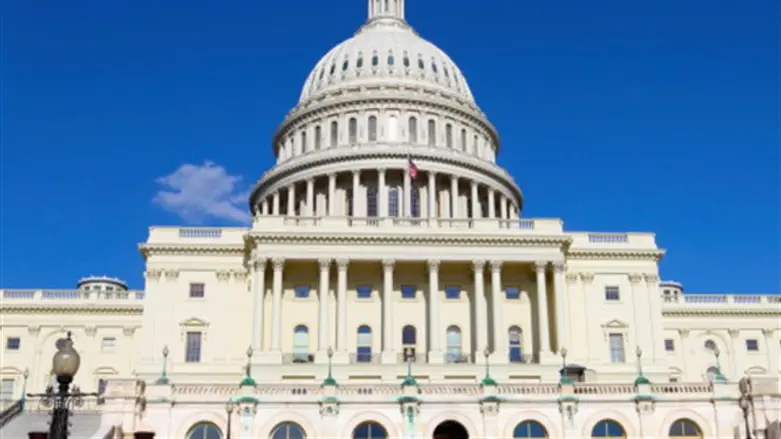
In my June 13, 2017 article, Comey’s own words prove his memos weren't his “Personal Documents”, I argued that James Comey’s testimony before the Unites States Senate Judiciary Committee could be considered perjury as Comey, under oath, swore that his “memos” were his “personal document[s],” and not a “government document[s].”
Now that the actual documents themselves have been released, not only does the fact that Comey contemporaneously emailed these to other government officials make them “government documents,” but critically, Comey’s own designations of the documents makes them “Official” documents. Apart from some of the “SECRET” designations, Comey personally and specifically designated some of the documents as “FOUO,” which means “For Official Use Only.” Therefore, Comey’s Senate Judiciary testimony that any of his memo documents were his “personal documents” and not “government” documents can be defined as perjury.
Remember, after Comey was fired, the then-private citizen Comey had given at least some of the memos to the law professor whom he directed to leak to the New York Times. So, Comey was caught in a legal bind. The only way he could give the documents to anybody he wanted was if they were his own “personal documents.” Otherwise, Comey would have to have admitted to taking and misappropriation of the government property of his memos.
Let’s review the transcript of Comey’s June 8, 2017 sworn testimony before the Senate Judiciary Committee.
Under Republican Senator Roy Blunt’s questioning:
“BLUNT: So you didn’t consider your memo or your sense of that conversation to be a government document? You consider it to be somehow your own personal document that you could share with the media as you wanted to?
COMEY: Correct. I...
BLUNT: Through a friend?
COMEY: ... I understood this to be my recollection, recorded, of my conversation with the president. As a private citizen, I felt free to share that. I thought it very important to get it out.”
You can’t get more clear than that!! Comey swore that all the documents were his “personal document[s]” and not [government document[s].”
Now, let’s look at the actual designations Comey gave to each of the memo documents he wrote, and in many cases personally initialed with his own handwriting:
- January 7, 2017 Memo- “SECRET//NOFORN”
Sent from Comey’s E-mail, typed initials “JBC”
- January 28, 17 Memo- “CONFIDENTIAL//NOFORN” Personally handwritten initialed “JBC 1/28/17” on page 4
- February 8, 2017 Memo–“SECRET//NOFORN”
Personally handwritten initialed “JBC” and Typed “JBC 2/8/2017”
- February 14, 2017 Memo– “UNCLASSIFIED//FOUO”
Personally handwritten initialed “JBC 2/14/17” and Typed “JBC 2/14/17”
- MARCH 1, 2017 Memo- “UNCLASSIFIED//FOUO”
Sent by Comey’s E-mail
- March 30, 2017 Memo– “UNCLASSIFIED//FOUO”
Personally handwritten initialed “JBC 3/30/17” and Typed “JBC”
- April 11, 2017- “CONFIDENTIAL//NOFORN” Personally handwritten initialed “JBC 1/28/17”
Where, I have written “personally handwritten initialed” is where on the released document Comey’s actual handwritten initials appear on the released document.
The designation used in the above-herein-referenced memos are defined as the following:
SECRET: This is the second-highest classification. Information is classified Secret when its unauthorized disclosure would cause "serious damage" to national security.
NOFORN: Distribution to non-US citizens is prohibited, regardless of their clearance or access permissions (NO FOReign National access allowed).
COFIDENTIAL: This is the lowest classification level of information obtained by the government. It is defined as information that would "damage" national security if publicly disclosed, again, without the proper authorization.
UNCLASSIFIED: Unclassified is not technically a classification; this is the default and refers to information that can be released to individuals without a clearance. Information that is unclassified is sometimes restricted in its dissemination as Sensitive But Unclassified (SBU) or For Official Use Only (FOUO).
FOUO: For Official Use Only. Used for documents or products which contain material which is exempt from release under the Freedom of Information Act.
We don’t know exactly which of these specific memos Comey took from the government and subsequently gave to the leaking law professor, but it is believed Comey gave at least 4 of the above-referenced memos to the law professor. The law professor had no security clearance whatsoever, and Comey admits he directed the professor to have them published because Comey wanted the memo information to be “out in the public square.”
Let’s exclude, for the moment, the Comey memos that are labeled “SECRET//NOFORN” and “CONFIDENTIAL//NOFORN.” I’m excluding those memos because anyone who testifies or remotely claims under oath to the Senate Judiciary Committee that any “Secret,” “Confidential,” and/or “NO Foreign National” access document is his “personal document” and not a “government document” is acting irrationally. And, Comey wasn’t just “anybody.” He was the former Director of the FBI!! So, if Comey was testifying about the Secret/Confidential documents, he clearly lied.
So, the question narrows to: How could Comey possibly truthfully testify that his Trump memos were his “personal documents” even where he personally designated them with weakest classification of the batch as “FOUO” meaning “For Official Use Only”? Remember, “Official Use” is the exact opposite of “personal use.” “Official Use” means the document is an “official” document, not a “personal” document. Therefore, the answer to the question is Comey could not possibly have testified truthfully that the memos weren’t “government documents,” and even about the “FOUO” documents.
The conclusion is Comey knowingly and purposefully seems to have perjured himself to Senator Blunt and to the entire Senate Judiciary Committee in saying that any of the documents were his “personal documents,” and not “government documents.” And, since, Comey both took the documents and perjured himself to the Senate Committee after he was fired, the DOJ Inspector General doesn’t have jurisdiction and AG Sessions must authorize an investigation of Comey’s post-firing crimes.
